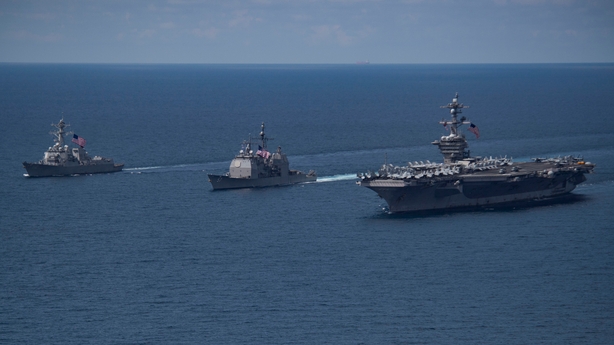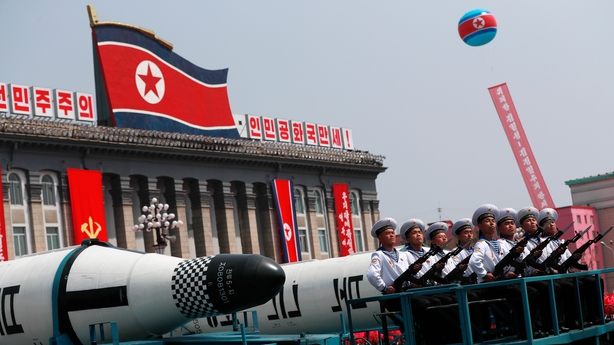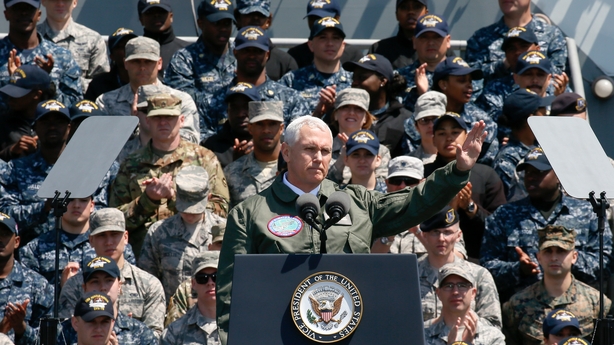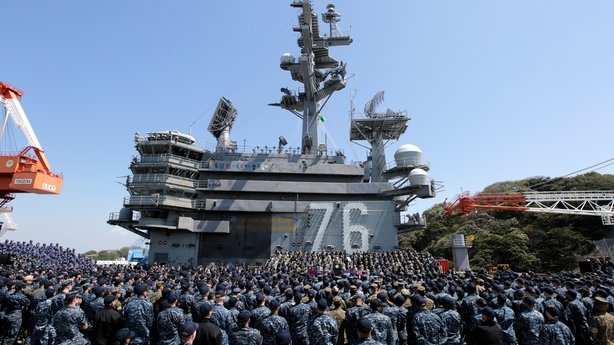An aircraft carrier the US Navy said was steaming towards the Korean Peninsula amid rising tensions has not yet departed, a US defence official has acknowledged.
The Navy on 8 April said it was directing a naval strike group headed by the USS Carl Vinson super-carrier to "sail north", as a "prudent measure" to deter North Korea.
Pentagon chief Jim Mattis on 11 April said the Vinson was "on her way up" to the peninsula.
US President Donald Trump the next day said: "We are sending an armada. Very powerful."
However, a defence official told AFP yesterday that the ships were still off the northwest coast of Australia.
A Navy photograph showed the Vinson off Java over the weekend.

"They are going to start heading north towards the Sea of Japan within the next 24 hours," the official said on condition of anonymity.
The official added that the strike group would not be in the region before next week at the earliest as it is thousands of nautical miles from the Java Sea to the Sea of Japan.
At the time of the strike group's deployment, many media outlets said the ships were steaming towards North Korea, when in fact they had temporarily headed in the opposite direction.
The United States ratcheted up its rhetoric ahead of North Korea's military parade and failed missile launch over the weekend.

On Monday US Vice President Mike Pence declared that the era of US "strategic patience" in dealing with Pyongyang was over.
North Korean leader Kim Jong-un responded with his own fiery warnings and threatened to conduct weekly missile tests.
It was not clear if the issue was the result of poor communication by the Navy, but some observers were critical.
Joel Wit, a co-founder of the 38 North program of the US-Korea Institute at Johns Hopkins University, said the matter was "very perplexing" and fed into North Korea's narrative that the US is all bluster and does not follow through on threats.
"If you are going to threaten the North Koreans, you better make sure your threat is credible," Mr Wit said.
"If you threaten them and your threat is not credible, it's only going to undermine whatever your policy toward them is."
The strike group has been conducting drills with the Australian navy in recent days, the official said, though it scrapped a planned port visit in Australia as a result of the new orders.
Speaking in Japan, US Vice President Mike Pence said the US will counter any North Korean attack with an "overwhelming and effective" response.
Mr Pence said the threat from the isolated regime was growing.
Aboard the USS Ronald Reagan, the US vice president told troops he was there as "storm clouds gather on the horizon" of Northeast Asia.


"North Korea is the most dangerous and urgent threat to peace and security in the Asia-Pacific," Mr Pence said.
But, "we will defeat any attack and meet any use of conventional or nuclear weapons with an overwhelming and effective American response."

